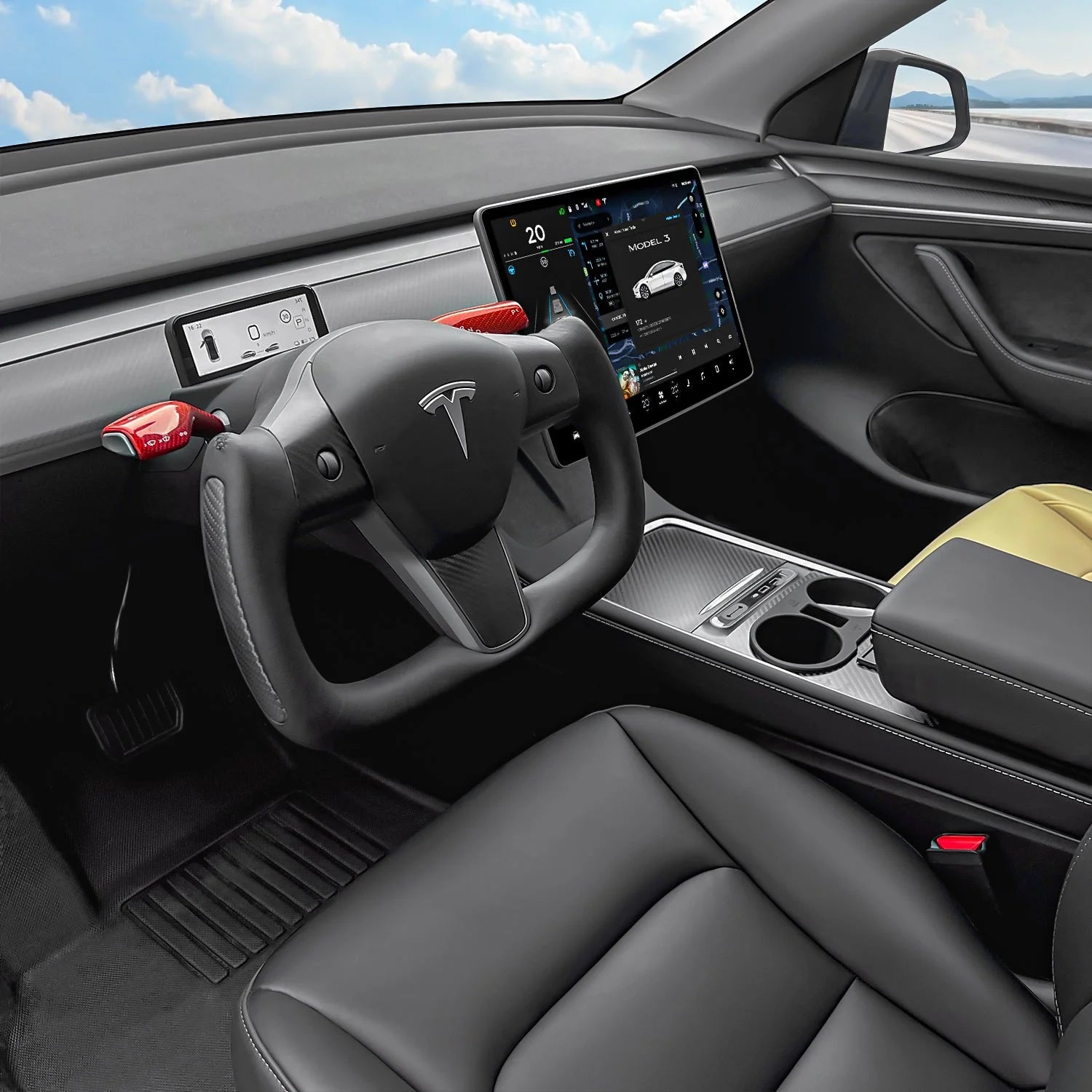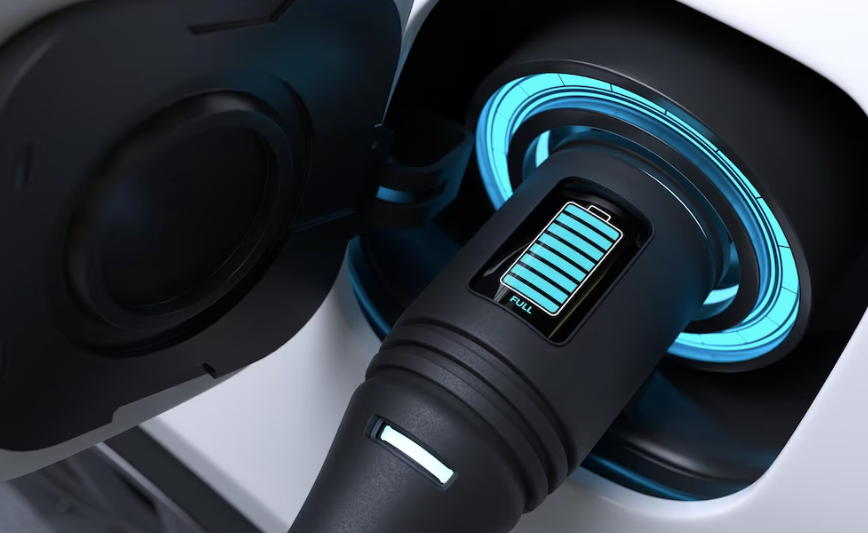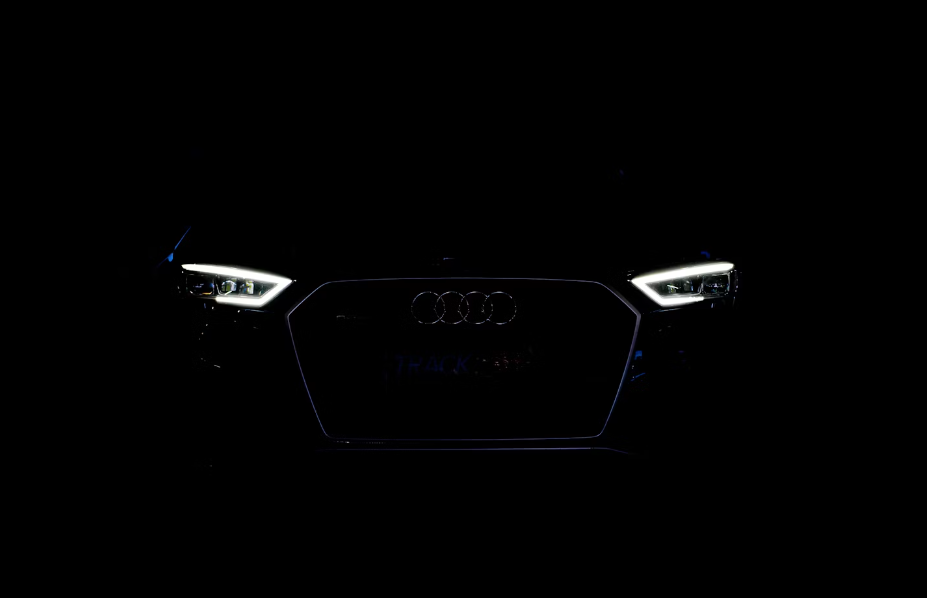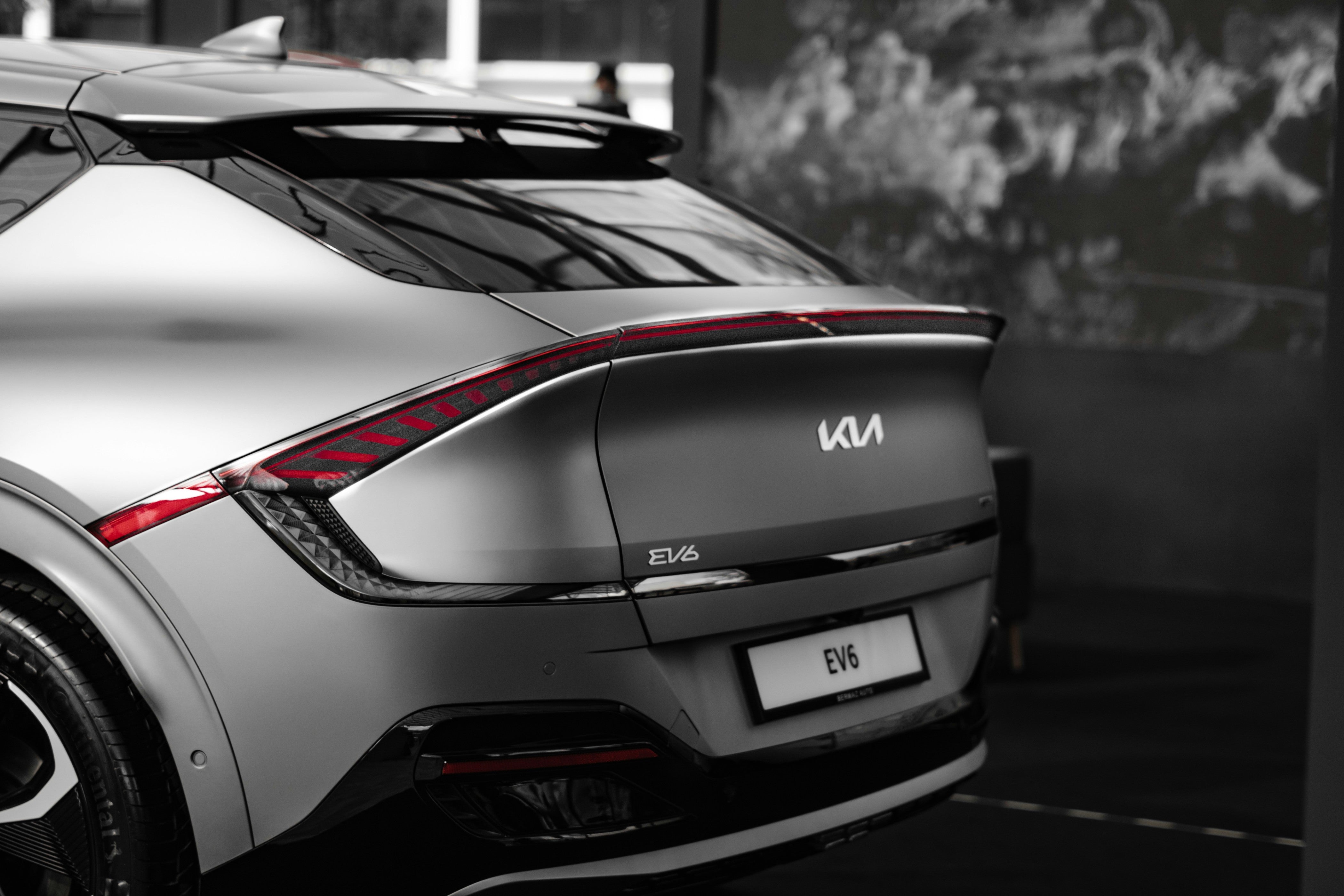Актуализирано на: 14.05.2025
Любопитно какво е CCS2 зареждане. Може да е объркващо, нали? Не си единствената. Много хора се забъркват с всички няколко начина за зареждане на електрически автомобили.
Но ето някои добри новини - тази статия ще ви изясни всичко. Ще говорим за шест важни неща, които трябва да знаете за CCS таксуването. Ще го направим възможно най-опростен и лесен за разбиране.
Така че, нека се отървем от объркването и да ви помогнем да научите това, което трябва да знаете!
Какво е CCS зареждане?
CCS Charging, което означава комбинирана система за зареждане, е конектор за зареждане на електрически превозни средства (EV), който привлича все повече внимание в целия свят.
Работи почти като универсално зарядно устройство и за EVs - но със специфичното намерение зареждането на EV да бъде бързо и удобно. В този аспект е почти като USB за зареждане на EV!
Зарядната станция CCS е най-бързият начин за зареждане на вашите електрически превозни средства. Тези зарядни устройства обикновено са локализирани в натоварени пътища и могат да зареждат мощност до 350 kW.
Това означава, че ще можете да заредите вашето EV за по-малко от 30 минути (зависи от мощността на зарядното устройство и възможностите на автомобила). Всичко е да ви дадем гъвкавост и свобода.
Освен това не става въпрос само за включване и захранване. CCS зареждането е интелигентно! Системата комуникира с вашия автомобил, за да осигури точното количество мощност, доставена безопасно и ефективно. Този интелигентен процес на зареждане пести батерията на вашия автомобил и в резултат на това можете да тръгнете отново на път за нула време.
По-долу ще обсъдим вида Зареждане на CCS.
Колко бързо се зарежда CCS?
CCS поддържа редица скорости на зареждане, съобразени с различни модели електрически превозни средства и капацитет на инфраструктурата:
- Стандартни тарифи за таксуване: Зарядните устройства CCS обикновено предлагат мощности, вариращи от от 50 kW до 350 kW.
-
Времена за зареждане: Продължителността на зареждане на електрическо превозно средство с помощта на CCS зависи от капацитета на батерията на превозното средство и изходната мощност на зарядното устройство. Например:
- Тесла Модел 3: Приблизително 20-30 минути за да се достигне 80% зареждане с помощта на зарядно устройство CCS с мощност 350 kW.
- Форд Мустанг Mach-E: Подобно време за зареждане от около 20-30 минути за 80% зареждане.
- Ауди е-трон: Приблизително 30-40 минути за да достигне 80% заряд.
Предимства на стандарта за зареждане CCS пред други стандарти
CCS предлага няколко предимства в сравнение с други Стандарти за зареждане на електрически превозни средства:
- Висока изходна мощност: Зарядните устройства CCS могат да доставят до 350 кВт, което позволява по-бързо зареждане. За сравнение, зарядните устройства Supercharger на Tesla са оценени на 250 кВти Зарядни устройства CHAdeMO обикновено предлагат до 50 кВт.
- Широко приложение в индустрията: CCS се поддържа от множество автомобилни производители, включително BMW, Ford, Hyundai, Volkswagen и други, което осигурява широка съвместимост между различни модели електрически превозни средства.
- Дизайн на интегриран конектор: CCS комбинира възможностите за зареждане с променлив и постоянен ток в един конектор, опростявайки процеса на зареждане и намалявайки нуждата от множество портове. Тази интеграция контрастира със стандарти като CHAdeMO, които изискват отделни конектори за зареждане с променлив и постоянен ток.
- Глобална стандартизация: CCS е приет като стандарт в множество региони, включително Европа и Северна Америка, улеснявайки унифицираната инфраструктура за зареждане и повишавайки удобството за потребителите на електрически превозни средства.
- Мащабируемост за бъдещи нужди: С възможности за поддържане на по-високи нива на напрежение и ток, CCS е добре подготвена да се съобрази с напредъка в технологиите за електрически превозни средства и разработването на превозни средства с по-голям капацитет на батериите.
Тип CCS зареждане
Стандартът има два основни типа CCS, които се грижат за различни региони и превозни средства, а именно CCS1 и CCS2.
По-долу е описано подробно за тях.
1. Зареждане на CCS1
Както бе споменато по-горе, CCS1 е основно приложим в Северна Америка. Това е стандартът, на който ще се натъкнете, ако шофирате електрическо превозно средство в Съединените щати, Канада или Мексико.
Конекторът CCS1 е допълнен с два щифта за зареждане с постоянен ток от конектора J1772 (за зареждане с променлив ток от ниво 1 и ниво 2 в Северна Америка).
Това, което отличава CCS1 от останалите, е уникален дизайн, изграден с оглед на специфични електрически системи и автомобили, карани в Северна Америка.
Като собственик на електрическо превозно средство в Северна Америка, най-вероятно ще се почувствате зависими от съоръженията за бързо зареждане CCS1, където можете да получите кратки времена за презареждане, за да бъде вашето превозно средство готово да се противопостави на нови пътувания из града.
2. Зареждане на CCS2
От друга страна, CCS2 (CCS2 Combo) е стандартът, приет в Европа и други части на света. Той се основава на конектор тип 2 Mennekes, широко използван за AC зареждане в тези регионални почви, комбиниран с два допълнителни щифта за бързо зареждане DC, подобни на CCS1.
CCS2 ще се разглежда като цялостен със способността да поддържа както еднофазни, така и трифазни електрически системи. Това му дава възможност да побере широк набор от опции за захранване, открити в различни страни и по този начин неговата популярност за използване в световен мащаб.
Независимо дали от работа, от зарядно на бензиностанцията или от мола, CCS2 DC зарядно устройство гарантира, че шофьорите на електрически превозни средства в Европа и по света разполагат с надеждно и ефикасно решение за зареждане.
Освен горното има и други важни факти, които трябва да знаете.
6 Важни факти за CCS2 зареждането
1. Тип конектор: Връзка тип 2 с два DC контакта
Дизайнът на конектора е хибриден в случая на CCS2. Той се присъединява към популярния конектор Mennekes тип 2 за зареждане с променлив ток, използван предимно в Европа, но с два допълнителни контакта за постоянен ток, позволяващи много бързо зареждане с постоянен ток.
Това прави дизайна на CSS2 конектора изключително гъвкав. Позволява както бавно, домашно зареждане, така и бързо зареждане в движение, всички през един и същи порт в нашето превозно средство.
2. Скорост на зареждане
Скоростта е една от основните точки за продажба на бързото зареждане CCS2. Докато точната скорост на зареждане може да варира в зависимост от конкретната електрическа кола и колко мощна е станцията за зареждане, станцията за зареждане CCS2 може да достигне до 350 kW.
Това означава, че бихте могли да добавите стотици километри пробег към вашето EV само за кратка почивка за кафе, правейки тези дълги пътувания по-лесни от всякога. В момента най-бързо зареждащите се превозни средства използват 800V архитектура на батерията и могат да се зареждат за под 20 минути (20-80%).
3. Преобладаващ стандарт в Европа
Например, за да осигури съвместимост и наличност на целия континент, Европейският съюз вече е приел CCS2 кабел за зареждане за използване като стандарт за зареждане на електрически превозни средства.
Този ход трябва значително да опрости изживяването с EV, тъй като тогава водачите вече няма да трябва да разчитат на множество адаптери, за да се включат в своите станции за зареждане и могат да разчитат на наличието на голям брой такива портове наблизо.
4. Ще отговарят ли предстоящите електрически автомобили на стандарта CCS2?
Светлото бъдеще за електрическите превозни средства в Европа зависи основно от стандарта CCS2. Няма признаци, че Зареждане на CCS2 ще бъде променено в близко бъдеще.
Това осигурява далновиден подход, за да се гарантира, че новите EV модели ще бъдат съвместими в бъдеще със съществуващата и процъфтяваща инфраструктура за зареждане.
5. Цена на зареждането на CCS2 в Европа
Разходите за зареждане на станция CCS2 обикновено могат да зависят от оператора, местоположението и часа на деня. В определени случаи може да има доставчици с предложения за абонамент или разход, при които не е необходим дългосрочен ангажимент за плащане за потребителите.
Решенията за бързо зареждане обикновено са по-скъпи в сравнение с домашните решения, както при по-бавните зарядни устройства. CCS2 зареждането струва около 0,50 евро на kWh, в сравнение с 0,15 евро на kWh за тип 2 (бавно) зареждане. За много собственици на електромобили обаче допълнителното удобство и потенциалното спестяване на време повече от компенсират разходите.
6. Популярни компании за зарядна инфраструктура в Европа
Европа се възползва от няколко водещи компании за инфраструктура за електрически превозни средства, които се съгласиха да предоставят бързо зареждане CCS2. Компании като Ionity, Fastned и ChargePoint продължават да са водещи в разширяването на техните надеждни високоскоростни CCS2 мрежи за зареждане.
Тези компании не само допринасят за инфраструктурата, но и играят много голяма роля в развитието на EV екосистемата, правейки електрическото шофиране по-достъпно и удобно.
Заключителни думи
Така че това е всичко за зареждането на CCS. Независимо дали сте настоящ собственик на електрическо превозно средство, обмисляте да преминете, или просто сте любопитни за технологията, трябва да разберете CCS зареждането, особено стандарта CCS2 в Европа. Тази CCS система за зареждане със своята гъвкавост, удобство и нарастваща инфраструктура е бъдещето, тъй като електрическата мобилност напредва в бъдещето.




